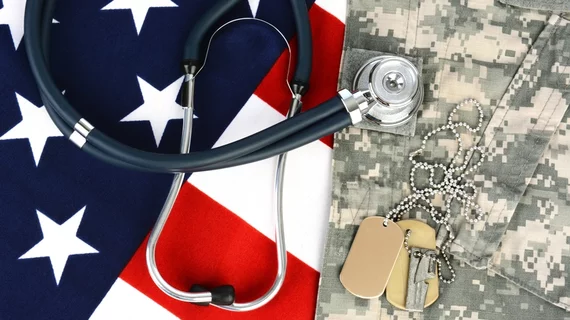AI ‘the only way’ for healthcare, says the VA’s first director of AI
The VA’s inaugural director of artificial intelligence believes the technology is “the only way” to move healthcare closer to its perennial dual goals of reducing costs and providing better care.
“AI is key to really taking advantage of [big] data to help vets and potentially others as well,” says Gil Alterovitz, PhD, who was installed last week.
Speaking on his guiding vision with a writer in the VA’s communications division, Alterovitz pointed to the Million Veteran Program (MVP) as a proven example of how the VA can leverage data to improve health at the population level.
MVP has gathered genomic and health data on more than 750,000 willing veterans, making it one of the world’s largest genomic databases, and it’s aiming to hit 1 million sometime soon.
Alterovitz, a Harvard Medical School professor who helped author the White House’s updated AI strategic plan released in June, says fostering partnerships with AI experts will be a priority.
“There’s a lot of exciting work in imaging diagnostics with deep learning outside the VA and lots of potential within VA,” he says. “But there’s not a lot of activity right now within VA. It’s perhaps a little under-represented.”
He also tells the writer he believes AI in healthcare won’t replace physicians or other healthcare workers.
Instead, he says, the drive to move healthcare forward with AI is “about establishing a human-AI collaborative environment.”
Read the whole thing:

